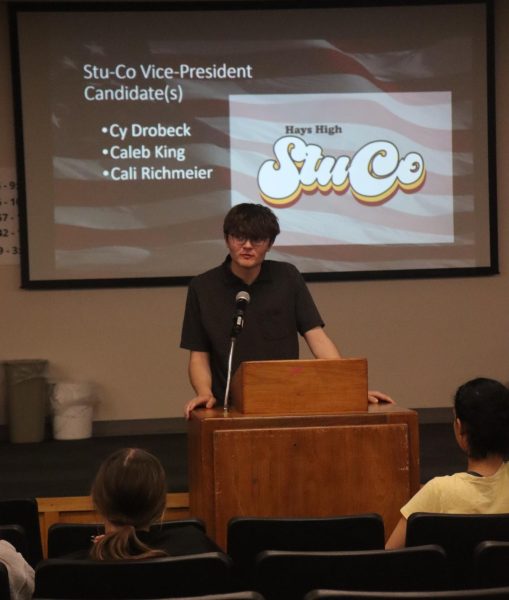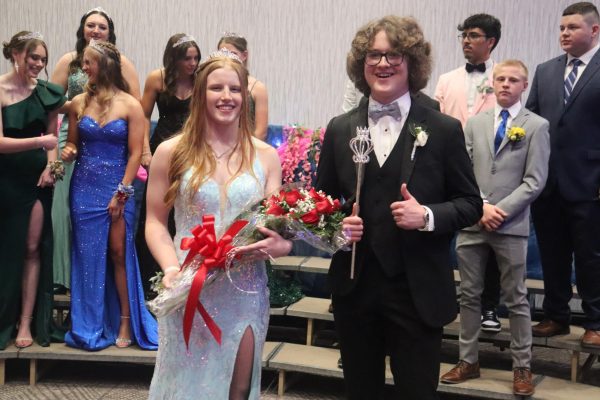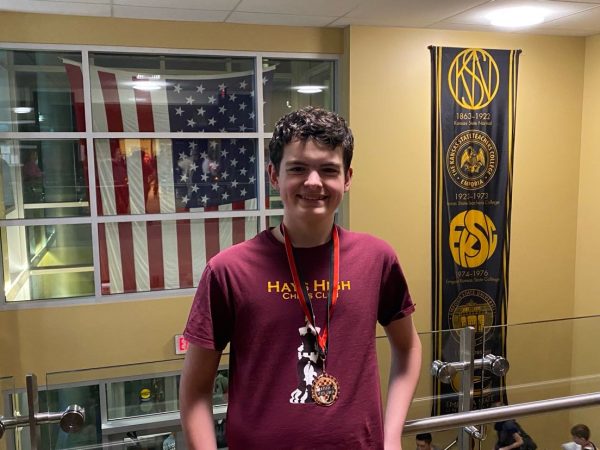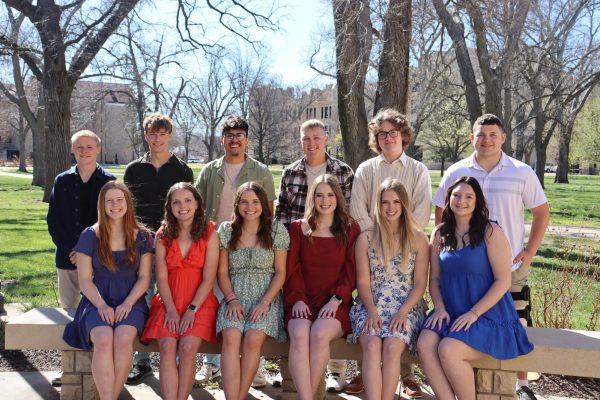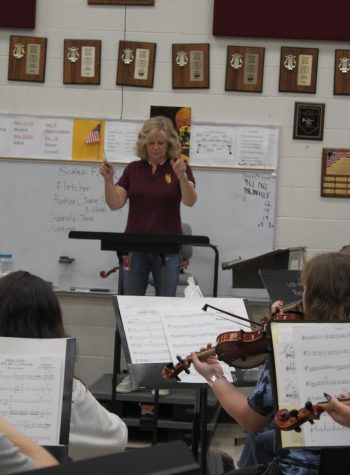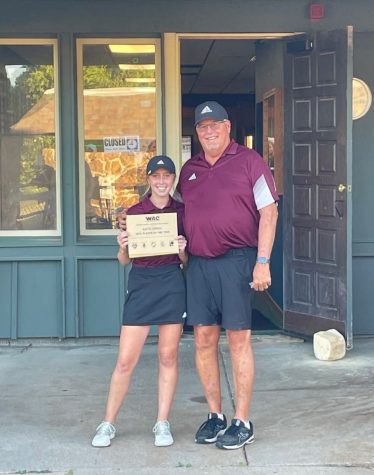Kansas Supreme Court convenes at Fort Hays State University
The Kansas Supreme Court convened in Hays for the first time since its establishment on April 13. Since 2011, the Court has convened in different counties across the state to be more accessible to citizens.
These visits help Kansans understand the role of the Court and the Judiciary, which is to interpret the law and make the decision the law requires.
“My colleagues and I are trying to re-establish the Kansas Judicial branch as being equal to the other branches of government,” Chief Justice Lawton Nuss said.
Three cases were brought before the court at Beach Schmidt Performing Arts Center on the campus of Fort Hays State University.
In all oral arguments, the appellant (party who filed the appeal) speaks first, followed by the appellee. There is often time for a brief rebuttal on the part of the appellant at the end of the session. During an oral argument, justices are allowed to question the attorneys.
In State of Kansas v. Heather Page Hilton, the inherent judicial authority to revoke probation terms that have not begun was explored. This case dealt with consecutive terms of probation, and the legal consequences following the violation of probation.
In City of Atwood v. Richard David Pianalto, reasonable suspicion for a policeman to initiate a traffic stop was discussed. Pianalto was stopped for speeding—he was going 28 mph in a supposed 20 mph zone.
The main issue was that Pianalto was drunk, and was issued a DUI. However, the sign stating that the speed limit was 20 mph had been knocked down approximately two days prior. When there is no traffic control device stating a speed, the automatic speed limit is 30 mph. One point of contention was whether this was a mistake of fact or a mistake of law.
In State of Kansas v. Steve Kelly Moyer, the case of Moyer, convicted of five sex offenses, was heard. The appeal dealt with whether Moyer had in fact received a fair trial. There were several possible trial errors, including bias on the part of the convicting judge. Also, Moyer’s court appointed attorney was possibly under qualified to deal with such a serious felony conviction.
Several other mistakes were also made, concerning errors on the part of the district court. Though individually none of the errors were that serious, the judges appeared interested in how many errors there were.
The Kansas Supreme Court asked questions in each case, clarifying issues and pointing out possible flaws in logic. The Court will convene and discuss these cases and eventually release a decision or delegate the cases for lower courts to hear.
Supreme Court justices are appointed to the bench through nominations based on merit, a process established over 50 years ago.
“I really had not thought about being a judge, but there was an opening on the bench for the third Judicial district court, and I wanted to let my daughters and granddaughters know that women can serve in that capacity,” Justice Marla Luckert said. “I did that for 12 years before becoming part of the Kansas Supreme Court. I happened to be the second woman ever appointed.”
Candidates are carefully selected by a nominating commission when there is a vacancy on the bench.
“I was a lawyer for 15 years, which meant advocating for one side or another,” Nuss said. “I eventually wondered what it would be like to be the one making the decision instead. I first applied for the court of appeals and did not get the job, but there was soon an opening on the Supreme Court and I was convinced to apply. I am very lucky to have been appointed.”
Justices must follow the law and remain uninfluenced by politics, public opinion and even their own personal beliefs.
“It really is about being able to uphold justice,” Luckert said.


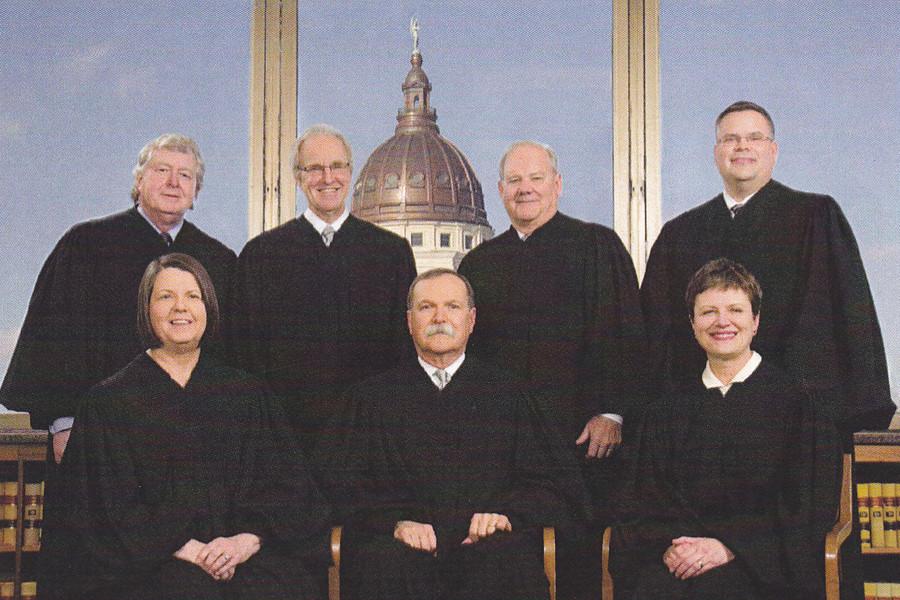
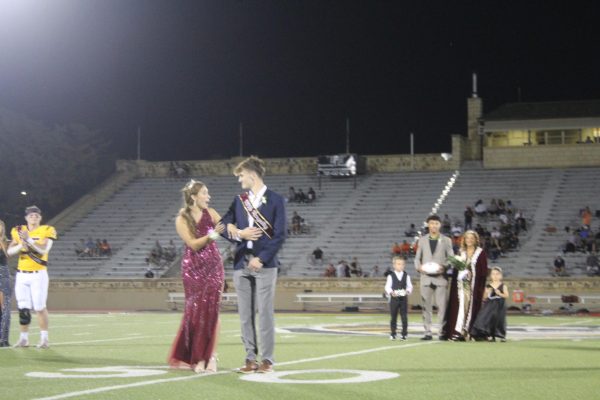
![English teacher Vanessa Schumacher likes to decorate her classroom for Christmas along with her house. Her school decorations are complete with a mini tree, as well as festive garland and lights hung around her room. “Every year I bring [the tree] on Nov. 1, or right after Halloween,” Schumacher said. “I bring it just to be funny.”](http://hayshighguidon.com/wp-content/uploads/2022/12/Christmas-Decorating-Schumacher-Tree-242x475.jpg)


